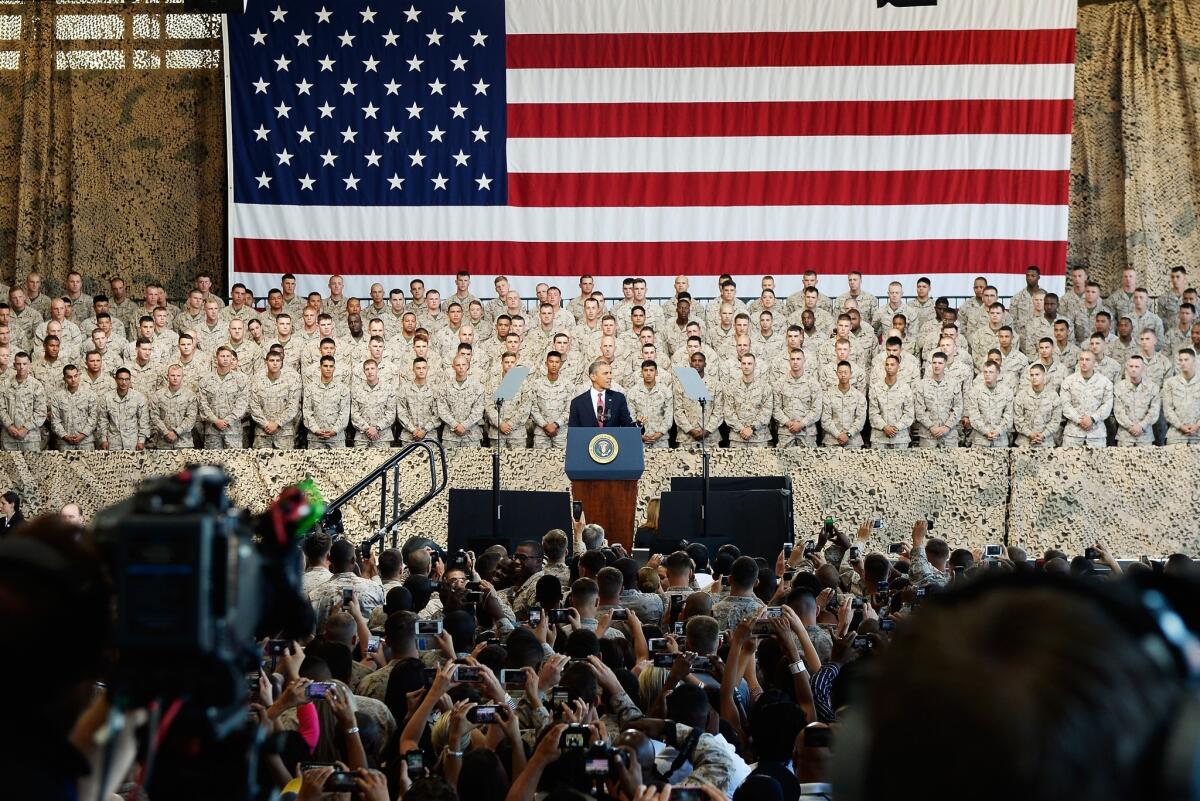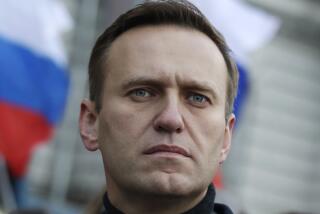Nixed Putin-Obama summit not really about Snowden, analysts say

President Obama’s decision to skip a one-on-one meeting with Russian President Vladimir Putin while he is in Russia next month has been cast by some political commentators and the White House itself as censure of the Kremlin’s grant of temporary asylum to fugitive espionage suspect Edward Snowden.
Two prominent Russia analysts responded with gloomy accounts of the summit cancellation and its significance for the future of U.S.-Russia relations, but both argued that Snowden had little to do with it.
The scrapped Putin-Obama meeting that was to have been on the eve of a Sept. 5-6 Group of 20 gathering in St. Petersburg “marks the formal end of President Barack Obama’s reset policy,” proclaimed Dmitri Trenin, a veteran political and security analyst who directs the Carnegie Moscow Center.
Although Snowden’s refuge in Moscow was identified by the White House as a significant factor in the decision, Trenin deemed it at most “a pretext.”
So, too, did Steven Pifer, a retired career foreign service officer who heads the arms control initiative at Brookings Institution. He dismissed the Snowden affair as a mere “distraction” in the deteriorating U.S.-Russian relationship brought on by a cascade of more fundamental disagreements.
Trenin lamented Obama’s decision to cancel on Putin as heralding a policy of putting more pressure on Russia to appease critics in Washington. Since the Kremlin gave Snowden permission to enter Russia after a five-week holdout at Moscow’s Sheremetyevo International Airport, politicians in Washington have been clamoring for a retaliatory gesture, suggesting Obama skip the St. Petersburg meeting or, better yet, call a boycott of the 2014 Winter Olympics to be held in the southern Russian resort of Sochi.
A retired Red Army officer and former nuclear negotiator in the Soviet era, Trenin likened Obama’s cancellation of his meeting with Putin to Soviet leader Nikita Khrushchev calling off a 1960 summit with President Dwight D. Eisenhower to protest the U-2 spy plane incident.
“The decision will leave its mark on U.S.-Russian relations,” Trenin warned in a post. “The atmosphere will grow thicker, and cooperation even harder to obtain. The Kremlin will likely interpret the move by the White House as a sign of Obama’s political vulnerability and conclude that not much can be done with the present administration.”
Pifer, who spent much of his 25-year diplomatic career in the Soviet Union and its former empire, argued that it is Putin who has become irrelevant.
Obama wanted a more collaborative relationship with Moscow during his first four years in office because he wanted to show progress on nuclear arms control and get Russian cooperation on the flow of U.S. troops and equipment into Afghanistan for the fight against Muslim extremists.
Those first-term objectives have been fulfilled with a new START agreement framework and the winding down of U.S. military operations south of Russia’s Central Asian borders. And the prospects for progress on what have become more divisive issues -- Moscow’s backing of Syrian President Bashar Assad and its reluctance to sanction Iran over its nuclear program -- are so poor as to warrant no further investment, Pifer suggested in a commentary in The Moscow Times.
“Can the positive momentum in bilateral relations of 2009-10 be restored? Probably not. The broader dynamics of the relationship today differ,” Pifer said, noting that Putin’s crackdown on opponents and dissent in Russia have made him “less attractive as an international partner.”
In addition to their deep differences over Syria and Iran, Moscow and Washington have been engaged in an exchange of recriminations over each other’s human rights records. Russian lawmakers have cast foreign relief workers and democracy-building advisors as Western spies bent on undermining national security, and laws have been enacted banning American couples from adopting Russian orphans and criminalizing public displays of support for gay rights.
The U.S. Congress, for its part, has passed the Magnitsky Act, a law listing Russian human rights abusers and barring them from the United States.
The Kremlin’s decision last week to allow National Security Agency whistle-blower Snowden to take refuge in Russia from U.S. criminal charges of espionage and theft was a symptom, not the cause, of the former superpowers’ troubled relationship, both Trenin and Pifer argued.
Joining in the “it’s not about Snowden” commentariat was former U.S. Ambassador to Russia Strobe Talbott.
“Obama v Putin: Summits need deliverables,” Talbott said via Twitter. “The now-non-summit was likely to get nowhere on arms control, missile defense, trade/investment.”
ALSO:
Myanmar army releases child soldiers
North Korea lifts ban on joint industrial complex with South
Extreme security in Yemen after Al Qaeda terror plot is foiled
Twitter: @cjwilliamslat
More to Read
Start your day right
Sign up for Essential California for news, features and recommendations from the L.A. Times and beyond in your inbox six days a week.
You may occasionally receive promotional content from the Los Angeles Times.







